Pros and cons of pediatric home care
Specialist topics
Pros and cons of pediatric home care
Children need special protection and special care. However, it is not always possible for parents to fulfill this task alone. In the case of serious illnesses, disabilities or other limitations, additional help is a real blessing. A Kinderspitex service enables sick children and young people to be cared for at home.

But is home care always the right choice? Find out below about the advantages and disadvantages of caring for children in their familiar surroundings.
You can also read about the specialist areas covered by Kinderspitex, the tasks it performs and the partner organizations.
What tasks does Kinderspitex perform and what are its priorities?
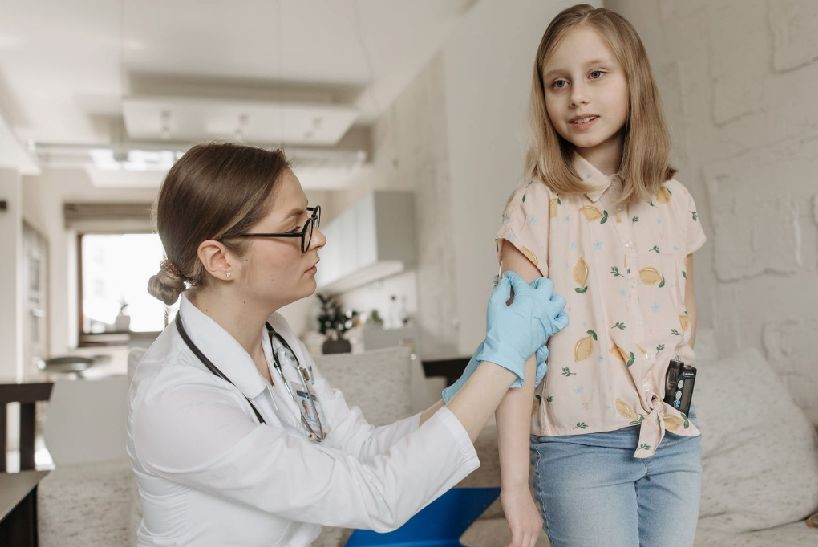
A Kinderspitex provides care services for infants, children and adolescents up to the age of 18. The specialists care for young patients in the following cases:
- for mild to acute chronic illnesses
- for disabilities
- in the last phase of life
The clients' legal guardians also receive support in the form of comprehensive advice and guidance in dealing with their protégés. Caring for a seriously ill or disabled child is not easy for parents. Kinderspitex therefore offers comprehensive help, including cooperation with insurers and clarification of funding.
It is also in close contact with the treating doctors and hospitals. This makes Kinderspitex a comprehensive source of support in difficult times, which also gives parents and guardians the space they need to take a deep breath.
What specializations are there in paediatric home care?
Palliative care is a very important focus of Kinderspitex. This is a holistic care concept for patients whose illness cannot be cured. Despite their serious illness, palliative care enables them to live as long and pain-free a life as possible in their familiar surroundings.
This specialty of Kinderspitex can begin its work at a very early stage - ideally immediately after diagnosis. The earlier help is sought, the easier it will be for the young client to cope with the situation. Of course, this also applies to their parents. Studies also show that an early start can improve quality of life, minimize hospital stays and prolong life.
This is possible because palliative care takes equal account of physical, psychological and social needs. The exact measures taken by Spitex specialists are individually tailored to the specific needs of the young client. This naturally includes comprehensive medical care and fast-acting pain treatment.
If necessary, relaxation exercises and support during anxious or depressive phases are also provided. A very important point is also the acceptance of death and taking away the fear of it.
Psychiatric help
Psychiatry is another important specialist area of Kinderspitex. Even the youngest among us are not always spared from mental illness. Young clients often find themselves in a world of their own. In some cases, they lose touch with reality.
They find it difficult to understand that they are suffering from a mental illness. As a result, they often have problems understanding what is going on and why they need certain treatments. The psychiatric department at Kinderspitex then offers support in various forms.
For example, it helps young clients to understand what is real and what is only happening in their psyche. Panic attacks in everyday situations are also alleviated with the aim of enabling them to participate in public life again.
Withdrawal from social situations or even isolation is a common phenomenon in mental illness. This is why psychiatric children's Spitex is also dedicated to maintaining a social balance. Respect for one's own body and its integrity is another important point. This is particularly the case if the mental illness is accompanied by the urge to self-harm.
The focus is on helping the young client to control their situation. At best, this will help them not to be led by their illness. Developing structured daily routines that provide orientation and support is an indispensable element of this.
For a smooth process
There is a lot to coordinate in the healthcare system. The doctors treating the patient in the surgeries and hospitals, therapists, insurers and parents all work together. Managing communication between all those involved is not easy. The legal guardians of children with physical or mental disabilities already carry a heavy burden on their shoulders. That's why case management takes this burden off their shoulders.
This specialist area of Kinderspitex takes on the entire coordination and accompanies any measures. The employees always take on a neutral role. This ensures that everyone involved can represent their own concerns and points of view.
Which partner organizations are there?
The first organization to be introduced is the Swiss Paediatric Nursing Alliance. This is an independent alliance of national specialist nursing societies, networks and associations. They all deal with the concerns of pediatric care and represent the interests of clients and their families.
All members of the Alliance are committed to providing effective and safe care. They represent the interests of pediatric care in terms of management, research, education and practice. At the same time, they support initiatives and measures that serve to establish and further develop pediatric care.
The founding members of the Swiss Pediatric Nursing Alliance include
- Network Nursing Services Pediatric Clinics CH
- Network of Nursing Experts in Pediatrics Switzerland (NPPS)
- Academic Society for Pediatric Nursing (AFG) of the Association for Nursing Science (VfP)
- Network Vocational Training Pediatrics Practice
- Swiss Pediatric Spitex Association
Portrait of various members of the Swiss Pediatric Nursing Alliance
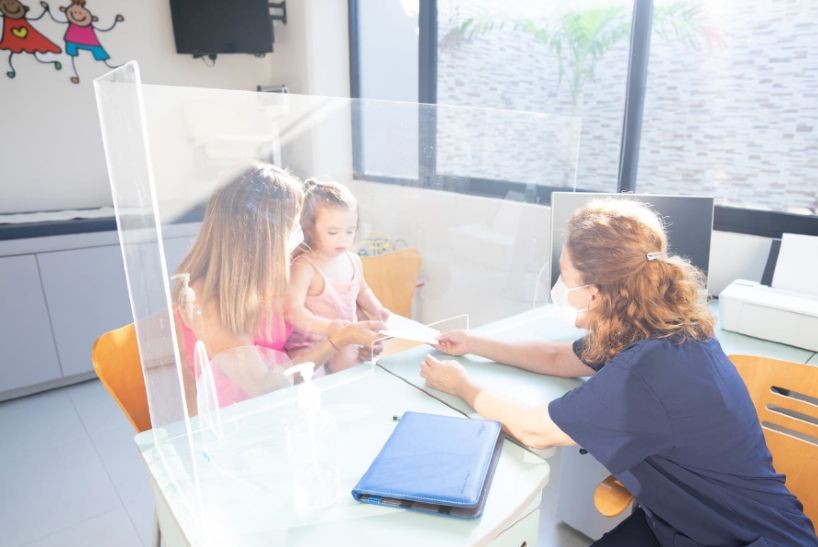
The Network of Nursing Experts in Pediatrics Switzerland is made up of nursing experts. They are delegated by their companies, for example a Spitex. The aim of this network is to share specialist knowledge and experience on pediatric care topics. Cross-institutional cooperation is also to be promoted.
The Academic Society for Pediatric Nursing of the Association for Nursing Science, an association of academically trained nursing professionals, has a similar aim. The specialist society is committed to ensuring and improving the care of children through the hands of Spitex organizations.
In order to make this possible, it is essential to research developments in detail and implement the resulting findings. This is precisely the aim of the professional association and of nursing science in general.
The Swiss Children's Spitex Association brings together public children's Spitex organizations that operate regionally and are networked with the health directorates of their cantons. The association is committed to ensuring that every child receives the outpatient medical care they need.
We would also like to introduce you to the Netzwerk Berufsbildung Pädiatrie Spitäler Deutschschweiz (NBPP). It is not a founding member, but nevertheless a current member of the Swiss Pediatric Nursing Alliance. Its members are made up of representatives of pediatric vocational training and have all been delegated by hospitals.
Their common goal is to strengthen pediatric vocational training and give it a higher status. To this end, they are committed to expanding the pediatric content of general nursing training courses. Thanks to their involvement in various cantonal committees, they actively influence this.
In addition to the Swiss Paediatric Nursing Alliance, the Kifa Switzerland Foundation, a charitable and non-profit partner organization, should also be mentioned. It has been looking after and caring for infants, children and adolescents as well as adults with health problems since 1990. Their relatives also receive support and relief.
Around 180 professional employees work here in the areas of care and administration. But this organization is not only dedicated to care services. With the help of donations, it also implements projects to relieve the burden on family members and other caregivers.
These are the advantages of home visits by a Kinderspitex specialist
Caring for a sick or disabled child at home has numerous advantages. Parents are relieved of a significant burden, while the child remains in their familiar environment. They always receive the care they need without being permanently placed in a care facility.
Parents and guardians are also trained in the correct way to deal with their child. This means they know how to respond particularly well to the child's needs. The legal guardians also learn how to act in difficult situations when no caregiver is present.
Support and relief for parents
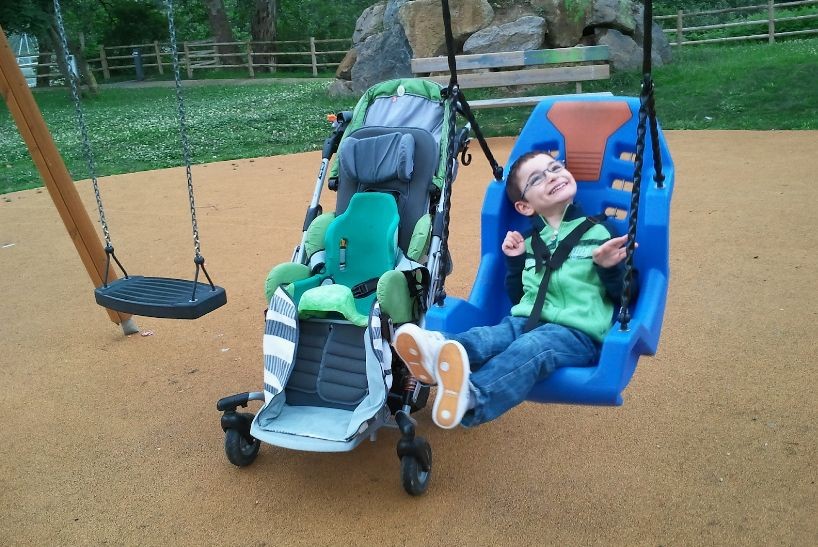
Such a situation is not easy, not only for the child being cared for, but also for the parents. Caring for a seriously ill or disabled child not only takes up a lot of time, but also energy. Those who provide care without professional help often have to cut back at work in order to have more time.
However, this is usually accompanied by a loss of earnings. This is when the money is particularly needed. The pressure continues to increase, also on a psychological level. The nursing staff at a Kinderspitex facility provide enormous relief for parents.
They can continue to pursue their professional activities in order to remain financially secure during this difficult time. The Spitex staff also have the necessary knowledge in the areas of medicine and care that the parents may lack. They look after the child competently and fully meet their needs.
This includes not only medical care, but also personal care. Children with a mental disability in particular require special empathy, which the Kinderspitex staff demonstrate. The nursing staff also support parents in dealing with their children. They show them what to look out for in general and how best to behave in difficult situations.
Staying in familiar surroundings
Thanks to care at home, the child grows up in a familiar environment within the family and with friends. Social contact has been proven to have a positive effect on the child's well-being and development. In contrast, it is difficult to say goodbye to family, friends and the familiar nursery when moving into an inpatient care facility.
In addition, the child has to settle into a completely new environment and get used to new routines and rules. They have to integrate into a new group, which is not always easy even for an adult. Adjustment difficulties can lead to new conflicts that put additional strain on the child. Supportive visits from family and friends are only possible at certain times.
In addition, not every favorite toy that reminds you of home can be taken to a facility to stay permanently. With care at home, all of this can be avoided. The child remains in their familiar and cherished environment and the Kinderspitex staff virtually come to visit. Familiar routines do not have to be abandoned and the child can grow up undisturbed in its family. Medical care is not neglected. It is important to be surrounded by familiar things, especially in the case of cognitive disorders.
Too many new things and unfamiliar impressions can quickly become overwhelming and severely impair well-being. The usual daily routine can largely be maintained when care is provided in the patient's own four walls. At an initial introductory meeting, we will discuss which services will be provided and how they can be optimally integrated into the familiar routines. Parents retain a high degree of self-determination so that individually tailored care plans can be drawn up. This is not always possible with inpatient care.
High degree of flexibility
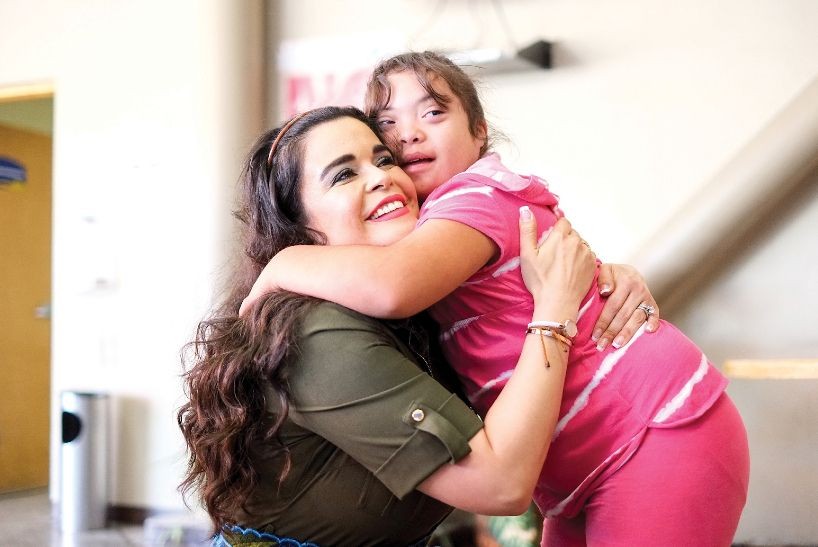
As already mentioned, visits are only permitted at certain times if the child is permanently placed in a care facility. If you decide to have your child cared for at home by a Kinderspitex, you give your child a lot of freedom. They can play with their friends at any time without having to keep to visiting times.
It can also be very disconcerting for other children to visit a playmate in a care facility. This may lead to friendships breaking down. If the child in care also finds it particularly difficult to integrate into new groups, this can lead to isolation.
It keeps its distance from the existing community and may become isolated. Of course, it is also important to be close to the family, as this is the most important point of reference. Being together with the parents and learning from them is of great importance for the child's development. At the same time, there is no emotional burden for the child and its parents. After all, they do not have to separate from each other every day at the end of a set visiting time, but remain together at all times.
Flexibility is not only required when receiving visitors, but also in the general organization of everyday life. People who live permanently in a care facility - whether children or adults - often have the feeling that they cannot act independently. You receive support with many things and quickly become accustomed to this help. Children can lose the incentive to acquire certain skills themselves.
Thanks to care at home, they retain a high degree of independence. One of the tasks of the specialist staff at a Kinderspitex is also to show the child being cared for how to manage on their own. After all, the nursing staff are not on site all the time - unless the parents opt for 24-hour care. But even then, achieving the highest possible level of independence is a priority for the care staff.
Possible disadvantages of care at home
Caring for a child in need of care in familiar surroundings comes with a number of advantages. However, there are also a few disadvantages. These start in the home itself. Minor or major alterations may have to be made, which takes up a lot of time and money. In addition, the child is unlikely to come into contact with people of a similar age. There is often no opportunity to exchange ideas and give each other support.
Barrier-free living spaces
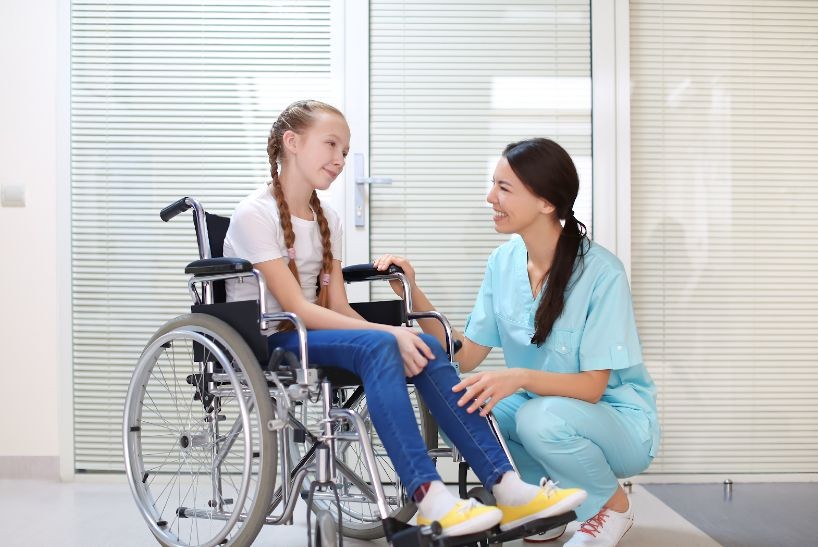
Some illnesses require the living space to be adapted. This includes, for example, installing a stair lift, adjusting doors so that a wheelchair can fit through if necessary, or remodeling the bathroom. It also makes sense to move the children's room to as central a location as possible on the first floor.
If a conversion is actually necessary, it must be checked in advance whether a building permit is required. Compliance with the building regulations of the respective canton and the Federal Disability Discrimination Act is essential. If the building project has been approved, it is possible to claim financial support. Disability insurance, for example, will cover the costs incurred.
The prerequisite for this, however, is that the living space is your own property or that you have a stable tenancy. Frequent moves lead to financing with a high degree of restraint. Anyone who has recently built their own home will also only receive limited support from disability insurance. This is based on the assumption that appropriate measures could have been taken in advance.
Consequently, in this case it only finances additional handles, handrails, grab rails and signaling systems. In principle, disability insurance only provides financial support for urgently needed conversions. For example, if the disability insurance approves a stairlift but the landlord only approves a passenger lift, the difference must be paid by the tenant.
Contact with other children
If childcare is provided at home, the child can receive their friends at any time. They can play with them outside to their heart's content, as long as this is physically possible. However, the more severe the child's limitations are, the sooner they will realize that something is different about them.
They may feel excluded because they can't always keep up. If the other children arrange to play on the climbing frame, they may only be able to watch. This can eat away at their self-confidence and possibly lead to isolation.
In addition, there is no one who understands how the child is feeling and what they may be struggling with at the moment. It is therefore important that they also come into contact with peers who are going through the same thing. Care at home does not provide this contact, but permanent care in an institution does.
It is important for every child to be able to talk to others. They should be able to talk to someone about certain things that only someone who is also ill can understand. At a certain point, talking to parents or an empathetic carer is no longer enough. This is especially true as the child gets older. Contact with children with the same fate is therefore of great importance.
How to find the best Spitex for your child
The specialists at Kinderspitex care for sick, injured or disabled children at home. They support not only the young clients themselves, but also their parents. In addition to providing care, the tasks of Spitex include comprehensive advice and passing on important information. Children's Spitex staff are usually in close contact with pediatricians and social services.
This ensures that the child's care runs smoothly and without detours. The nursing staff take care of the child's medical care and wounds. They also guide the parents in dealing with the young client. If the child is in its final phase of life, the Spitex nurse will accompany it until the end. Have you, as parents, decided to hire a Spitex nurse to look after your child at home?
Then we at OPAN® are here to help you. We can help you find the right Spitex in your area. To do this, first enter your zip code and you will be shown suitable organizations. If you wish, the pediatrician treating you can also take on this task. Once you have made your choice, you will need to enter the name of the child to be cared for, the health insurance company and the pediatrician.
The latter sends the medical documents required for registration digitally to the chosen Kinderspitex. In an initial consultation, the Spitex staff will assess your child's current situation together with you. They will determine where and to what extent support is required. The organization will then carry out a needs assessment.
It will check which services your child urgently needs and send a statement to the pediatrician treating your child. After the doctor has also checked the document, he or she forwards it to the relevant health insurance company. The insurance company then finances the listed services. We at OPAN® will assist you in your search for the best pediatric Spitex. Please fill out our contact form, give us a call or send us an e-mail.
